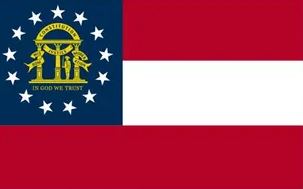 |
 |
 |
|
|
|
|
|
|
|
|
|
|
|
|
|
|
North Moody Informational Page Disclaimer: This is an Informational Page Not representing in any way the nonprofit corporation North Moody Homeowners Assn, Inc. No warranty is made for any information herein. The author is not an attorney & no legal advice is intended. The North Moody Subdivision is a quiet, rural residential community in Lanier County, Georiga about 4 miles north of Moody AFB. Most homes are about ten years old and as of 2024, the current sales prices range from just under $200,000 to about $260,000. All homes are on half acre lots with slab and frame construction and vinyl or Hardie board siding. Many military families that have purchased homes in the North Moody subdivision have realized very favorable gains upon resale, but not so much as of 2024. A recorded home owners association exists with very mild restrictions and very low assessments that pay for general road and grounds maintenance. The association was incorporated in May of 2009 with the filing of Articles of Incorporation, as well as Bylaws, with the Georgia Secretary of State, in compliance with Title 14, Chapter 3 of the Georgia code. At the same time, a Declaration of Restrictive Covenants was recorded locally with the Lanier County Clerk of the Superior Court in Book 206, Page 7-13. All title searchers, Realtors, and attorneys know of the subdivision's community association and can determine its current status within a few seconds using the online Georgia Corporations Division web page run by the Georgia Secretary of State. as well as via the "Georgia Superior Court Clerks' Cooperative Authority." According to its charter, the association promotes and protects home values by collecting moderate dues to pay for maintenance of common areas, such as the roads, easements, and green space. Also, the association board is required to "promote the recreation, health safety and welfare of the residents in the After the corporation was created on May 29, 2009, it lasted 14 months, at which time it was dissolved by Sec. of State Brian Kemp for nonpayment of annual fees by the developer. The HOA remained dissolved between Sept 18, 2010 and January 20, 2014 for unpaid state fees. At this interval, despite the corporate dissolution, the recorded covenants remained in full force and affect, according to common law. After the corporate HOA was reinstated, Georgia law states “it resumes carrying on its business as if the administrative dissolution had never occurred."* Georgia Code § 14-3-1422 (2020) section d. This subdivision contains 60 lots of approximately one-half acre each. The two roads (North Moody Drive and West Stanley Road Ext.) are solely maintained by the HOA. Also, the HOA is responsible for one large green space area to the NW of the Subd. which is about 50' by 780 feet, as well as a large easement west of Stanley Rd. Ext. The roads, road easements, and green space add up to about eight acres owned and maintained by the HOA, according to public records. The current state of the roads is poor and a "reserve" fund has not been collected to maintain and repair them in the future. As of 2024, no attempt has been made to start any reserve fund. Each year an annual letter states that the board desires to promote the value and salability of homes by ensuring the roads are in good shape and the neighborhood is maintained. This maintenance goal is to ensure all owners preserve the highest property values possible. This entails upkeep for appearance and cleanliness, and also ensures compliance with various ordinances within the Lanier county codes. The HOA's maintenance goals currently coexist with at least one or more board members stating they "do not intend to enforce the covenants...as they are currently written. " The membership is unaware of this fact or else has shown no interest. The HOA board works for the HOA members, therefore member input is critical. The focal point for comments is the president (dbak1@yahoo.com). Members can, to a degree, control how the community is managed and where their money goes by attending the annual meetings, or calling for a "special" meeting. The question of where the HOA money goes is normally contained in a HOA's corporate budget. However, this HOA has never provided a written budget to define and control its expenditures for the improvement of the neighborhood. A call for an annual "members" meeting is given in January of each year to elect new directors. IF at least 18 members, one from each of 18 homes, is present at the annual meeting, then members can propose changes and vote them into official resolutions with a 51% majority vote; a minimum of just 10 votes. This is how the members can have some control over their community. Members themselves can call for a "special meeting" if at least 20 members come together to make such a request. The rules above are "the members rights" but they have no effect unless the members "stand up" for their rights and "fight for them" within the rules of order. The Bylaw and the Covenants can be amended, or policies can be enacted, within the procedures given in the Bylaws and Covenants. The board has put in writing that the HOA is a necessary evil. This has created a self-fulfilling prophecy along with another false concept that there is no purpose to the HOA. There are 345,000 HOAs in the U.S. and all have a purpose. That does not mean all understand their mission and value. The purpose of HOAs has been stated variously as:
Ultimately, the HOA is what the HOA members make of it. The members have rights (see HOA Bill of Rights.) and can make changes. The banks like to think HOAs have a purpose. Many lenders prefer to see an HOA involved in the homes they finance due to a national study that determined that HOA homes, on average, have a 4.2% higher value than non-HOA homes. This assures the lender that their loan is secured. This very same rationale benefits all home owners--an HOA can be a financial benefit upon resale of your home! HOA members must think before agreeing to rash conclusions that petitioning for dissolution of the HOA will solve typical management issues. The common areas including roads and rights of way are private property and the county does not have any incentive to step in to maintain them. Therefore the roads still have to be maintained, either by the county, a contractor, or the HOA. The cost can never be avoided. Attempting to dissolve the HOA would entail a huge price in attorney fees and extra efforts entailing a specific plan submitted to the Sec. of State on how the common areas would be sold and how the roads, the easements, and the green space would be maintained. In the end the alternative could be just another form of the same trouble. Ask any attorney that specializes in this area of law. The entire process must be realized and once it is, the obvious choice is to accept the HOA and the minuscule fees, clean up the neighborhood, do proactive instead of reactive road maintenance, abide by the legal promises in the covenants, amend the covenants as necessary, create policies that are acceptable, and make the community what the people want to ensure their home values are secure. There are always those who make rash suggestions that are nothing but poorly thought out whims. Accusing the board of "extortion" for writing collection letters is an example. Extortion is using force or intimidation to coerce money from others unlawfully. Homeowner dues are not unlawful. Requesting payment of dues is not unlawful, but actually a duty implied by Georgia law. Letters alone requesting dues have no force. Another unhelpful plea is that the board is illegal and the HOA paperwork was filed improperly. As well, entertaining that the county assessor or clerk has authority over the HOA. These have become myths; no law or record gives the county any authority over the HOA. The covenants are a common law agreement that run with the land. The corporate structure (a non-profit corp.) that maintains the HOA via the covenants is an entity of the state, not the county. Yet another myth is that the HOA is "voluntary" or that is can be converted to a voluntary status. Very few HOAs are voluntary and if so they indicate that in the public record. Given that there are private road and a greenspace to maintain, a voluntary form of governance would be very risky and not feasible in the long run. Additionally, many lenders would hesitate to make loans on homes in a community that has private roads and no HOA and no commitment of maintenance from the county. Another fantasy is that the developer had a power mindset and wanted total control of the neighborhood, or that the HOA was created to take care of issues that developer shunned. These are irrelevant and mythical. There are several hundred thousand HOAs in the U.S. and they are all created for the same reason: to give control to the local residents to maintain common areas, as well as to enforce a certain code by way of keeping up the maintenance of the general environment. Jumping to conclusions, invalid assumptions, exaggeration, and believing in myths is so prominent that current attempts to resolve dissatisfaction will ultimately fail. However, with an attitude toward learning the true facts, and patience to study and understand the options available, including the costs and the practical possibilities, changes could be made to eventually minimize the issues that currently exist.
The business address of this association is: |
||||||||||||
|
||||||||||||||||||||||||||||||||||||||||||||||||||||||||||||||||||||||||||||||||||||
|
||||||||||||||||||||||||||||||||||||||||||||||||||||||||||||||||||||||||||||||||||||